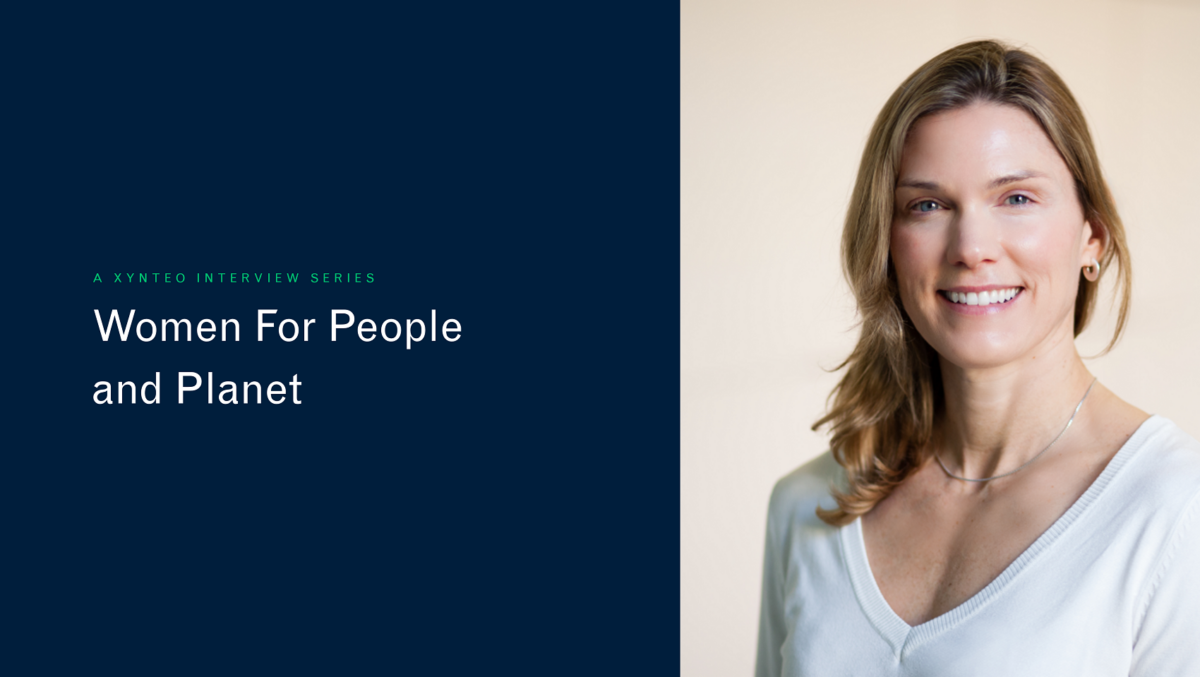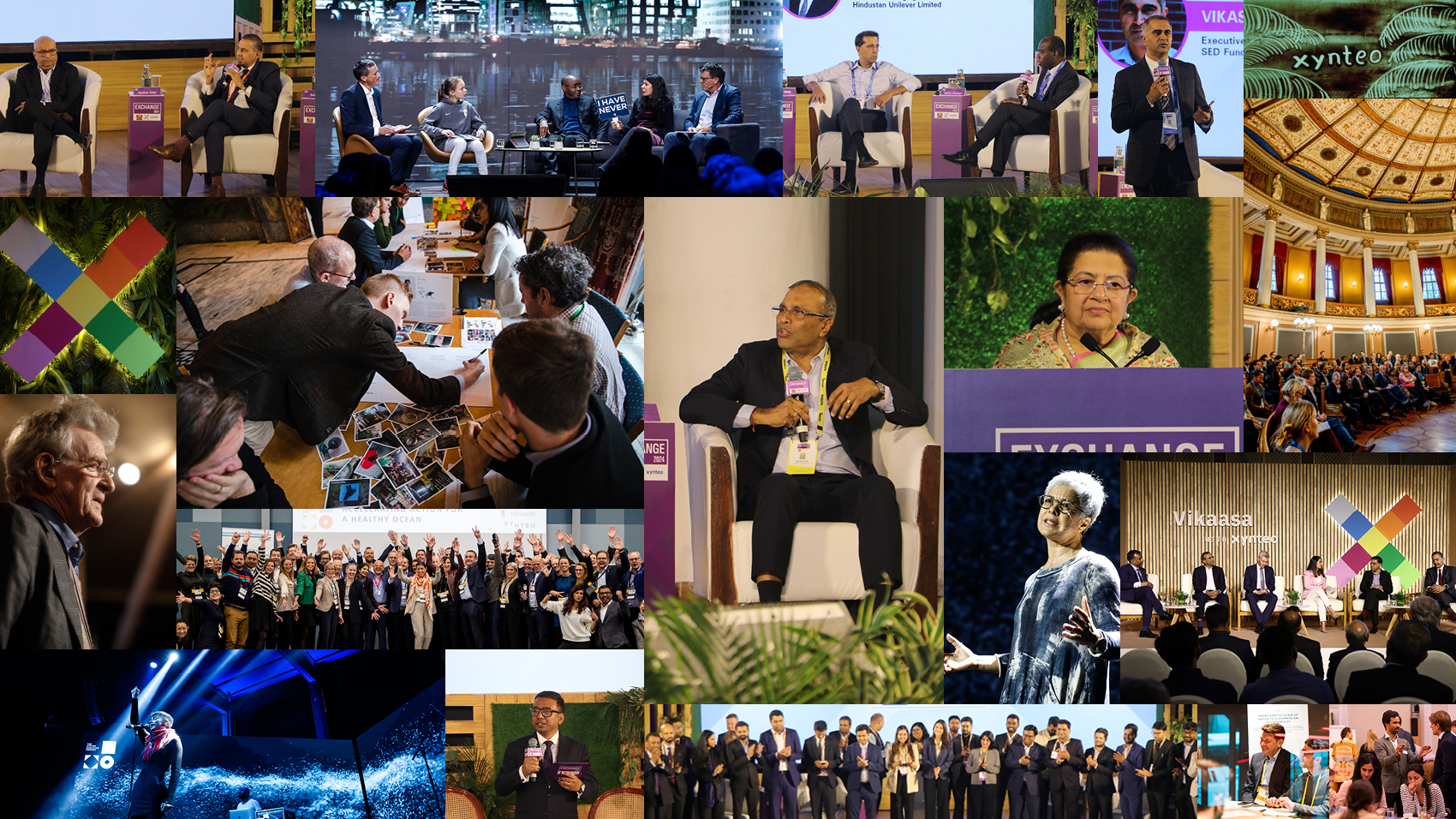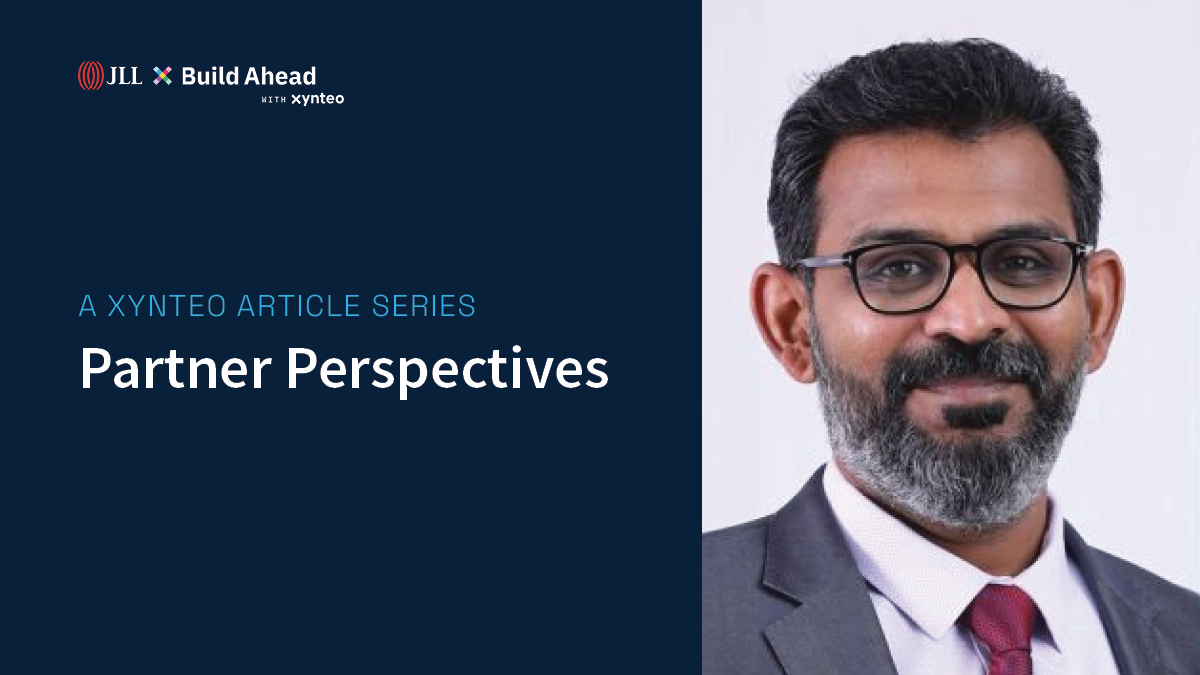Impacted at a young age by environmental issues in the Chesapeake Bay region where she grew up, Audra has since pushed for change at corporates and financial institutions across the world.
Xynteo’s Sally Gray sat down with Audra to talk about her career, what she has learnt along the way, and what she sees as the future of sustainability.
What does your personal journey towards sustainability look like?
Audra: My personal journey towards sustainability started when I was about 10, and I was told we couldn’t swim in the beautiful bay where I grew up because of pollution. That had a profound impact on me, and from that moment I remember thinking that I must do everything I can to ensure that my own kids would one day be able to swim in that bay. I got my first part-time job at The Nature Company when I was 14 and then my first internship at Conservation International in Washington, D.C. when I was 19. My professional journey toward sustainability didn’t really begin until 2013 however, when I started consulting for asset managers and companies that were beginning to take CSR, SRI and ESG seriously.
What are the skills and experiences that you’ve valued the most on this journey and have equipped you best?
Audra: I think one of the most important things I’ve learned is that nothing comes without a cost—and when it comes to sustainability, that works two ways. This is well illustrated by the concept of a ‘just transition’. In our push for a net zero world we must take into account the social implications of winding down sectors that have millions of employees, otherwise we end up creating more issues as we try to solve one. We clearly need urgent progress on a host of pressing environmental and social matters, but solutions must be balanced, and all the costs and benefits weighed carefully. Being able to do that—weigh all factors to make the best decision for multiple stakeholders—is a very useful skill to have, and one I am continually trying to improve.
What opportunities have been the most important to making progress in your sustainability journey?
Audra: I’ve had some incredibly forward-thinking CEOs and management teams over the years that have let me run with ideas, new products and unconventional programmes. Being given those opportunities has been pivotal for me. They gave me the confidence to keep thinking outside the box, question the status quo and push for better outcomes. It is my sincere hope that over the course of my career I am able to create those opportunities for others.
In future we will see ESG risks and opportunities incorporated into the remit of every C-suite officer as it becomes clear that this is one of the biggest angles for out-performance.
What barriers have you faced?
Audra: Much of what I am focusing on each day will ultimately depend on systemic shifts—both on a macro level and a company level. For example, without policy in place requiring companies to report on ESG metrics, companies don’t start measuring, let alone reporting. Similarly, on a smaller scale, in private credit, we try to incentivize companies to make ESG progress by tying their interest rate to ESG KPIs. But that can sometimes be counter-productive unless the broader systems and processes are in place at the company to support that change. These are barriers we just have to work around.
What has been your proudest impact achieved?
Audra: I have two young boys. They can tell you what GHG emissions are, why fossil fuels heat the planet, and the impacts of that extra heat on our world. I can’t take credit for all of that, but nevertheless, they are the part of my life of which I am most proud.
How do you see the future of the CSO role/sustainability teams in the board room?
Audra: What began as the remit of the communications team at many companies, eventually was given a dedicated resource with the introduction of the CSO. Nowadays, the CSO reports to the CFO because it is widely accepted that social and environmental risks and opportunities are inextricably linked to the value of the company. This is why the CSRD, for example, requires non-financial and financial reporting to be integrated. I think in future we will see ESG risks and opportunities incorporated into the remit of every C-suite officer as it becomes clear that this is one of the biggest angles for outperformance. The CSO will play a bigger role not just within the boardroom, but across all divisions of the company.
To be inspired by all our latest interviews, visit our Women for People and Planet interview hub.
Read more


